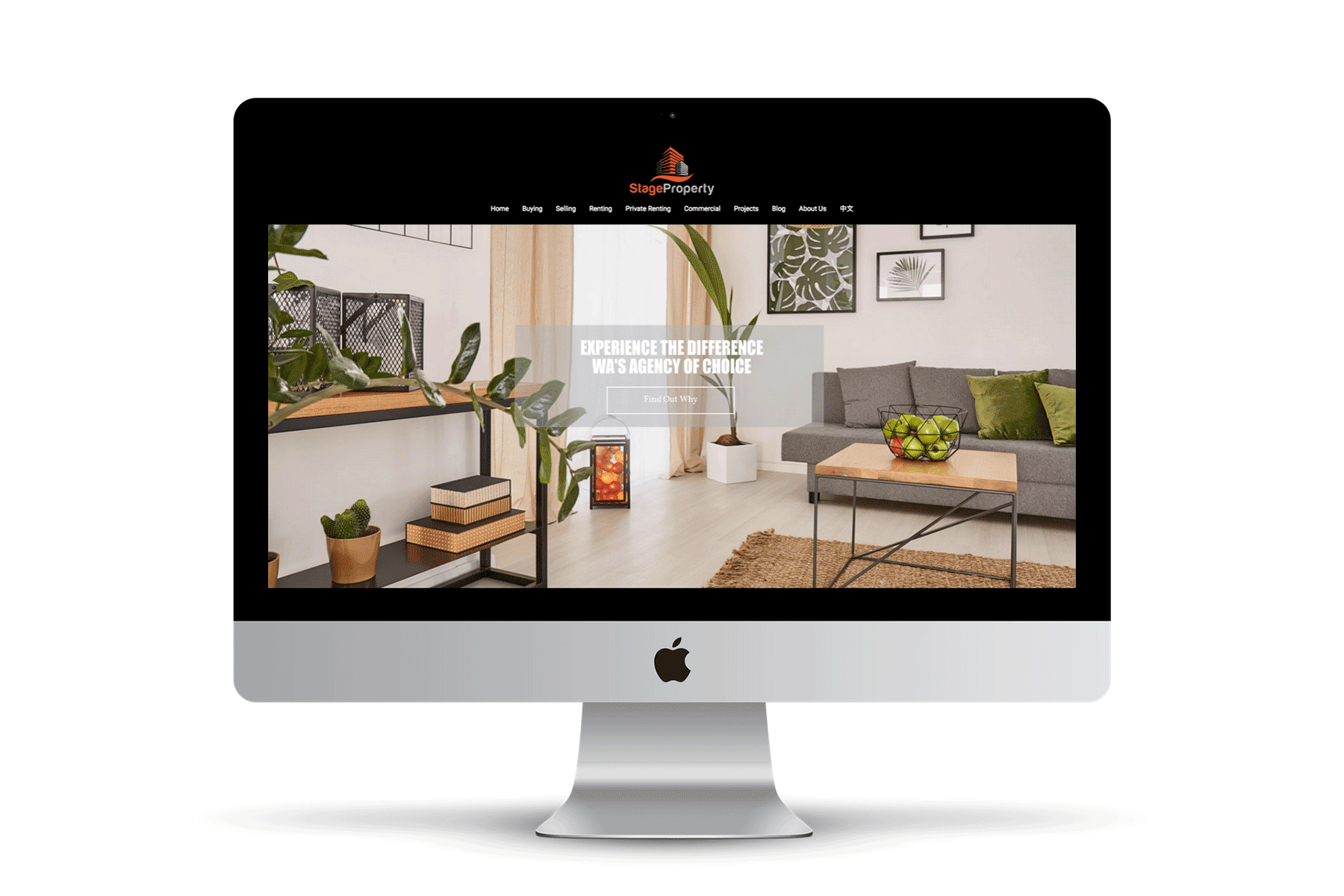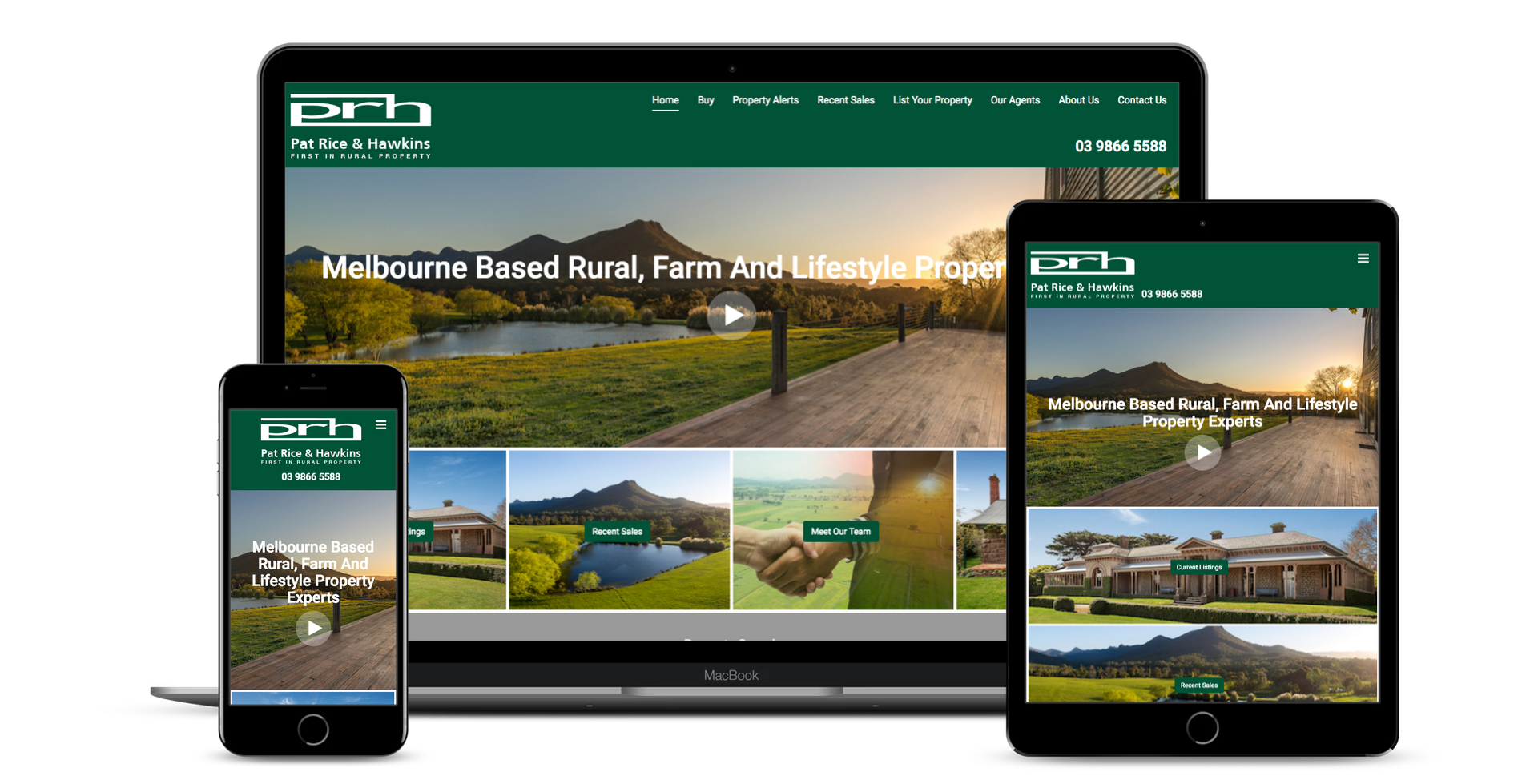 From Instagram stories to the recent boom in advertising options, it’s definitely a great time to be using Instagram for your real estate marketing.
From Instagram stories to the recent boom in advertising options, it’s definitely a great time to be using Instagram for your real estate marketing.
But how can your agency get the most out of Instagram? In this post, we’ll cover everything you need to know, from setting up an account to growing your brand and driving those results.
How to Set Up Instagram for Your Real Estate Business
If you’ve yet to set up your Instagram account, don’t worry. You’ll need to create an account by using a secure email and password. After doing so, you’ll be redirected to a page where you’ll be asked to create a profile.
Your bio and username
To help boost your discoverability, you need to get your username on Instagram as close to your brand name and other social profile name. For example, if your agency is called ‘Sydney Real Estate’, try and aim for the same on Instagram.
In your bio, you’re given a short space to describe your business and what people can expect to see from your profile. If you have branded hashtags you’d like your followers to use, you can also use this space to let them know.
Your photo
It’s a good idea to use your agency logo for your profile photo. Why? Because not only will it boost your brand recognition, it’ll also help your audience to find you more easily.
Your profile photo will be cropped into a circle by Instagram, so make sure your logo will look good in this. Although the mobile app will reduce the image to 100px, choose a larger one to make sure it looks good on desktop view, too.
Get some followers
To finalise setting up your agency’s Instagram presence, follow some users. Find people relevant to what you do, as well as potential customers living within your service area.
Your demographic is likely to be different from other agencies, so make sure you know who they are before you start following them. If you’ve already got a Facebook presence or an email database, consider sending information out to them asking them to follow you on Instagram, too.
Work Out What You Want from Instagram
Before launching head-on into your social media efforts, you first need to work out what you want to achieve. Here are some examples:
- Boost enquiries
- Drive website traffic
- Increase brand awareness
- Add value for your customers
- Attract talented realtors
- Build relationships with industry influencers
Creating Your Real Estate Content Strategy
Browsing the platform, scrolling through endless city photos and liking them randomly works fine if you’re on Instagram for personal use. For your business, however, you need a much more defined marketing plan.
1) When you should be posting
You’ll need to create and stick to a regular posting schedule, but be sure to not overload your audience.
If you’re unsure of where to start, kick things off by posting at different times and intervals, and see which get the best response.
Once you’ve outlined the best times to post, create a content calendar to keep yourself on track.
2) Shift your content themes
You can keep your audience interested by regularly changing your content themes. For example, if you’re an agency in Melbourne, you can switch between city events, new listings, and customer testimonials.
3) Stick to your style
Does your brand have set style guidelines? If not, create some. We’ll discuss this more in the next section.
4) Define your engagement strategy
How often are you going to like, comment, and respond to comments on your photos? This is something you need to work out early on to keep on top of the process.
Avoid using automated engagement platforms, because more often than not, they come across as generic and put people off your brand.
Building Your Real Estate Agency’s Instagram Brand
Instagram is a visual platform, so you need to define your brand identity to keep your followers engaged.
1) Stay consistent
60% of brands on Instagram use the same filter over and over again. Although you might think this would make your posts look bland, it actually does the opposite. By doing this, you can craft a style that’ll make your posts easily recognisable to your audience.
When they’re endlessly scrolling down their feed, you want your followers to stop at your photo. If you’re posting great, recognisable content, they’ll be more likely to do so.
2) Set what you’ll be posting about
You need to work out what your posts will be based around. If you only sell waterfront properties, posting rural cottages isn’t going to get you very far.
Although you should stick to your subject matter, you should work around other content themes, too. Use Instagram as a way of giving your audience a look behind the scenes of your agency, posting pictures of your agents and any social events you may attend.
3) Set up a branded hashtag
Although it’s a visual platform, Instagram still has non-visual elements. One key way of nailing this side is with a branded hashtag.
This isn’t just about using your brand name with a “#” in front of it. Choose something that’s unique and defines your agency and what you do.
Instagram Hashtags – What Every Real Estate Agent Needs To Know
4) Relate to your followers
Although it can give you some ideas on where to start, your brand won’t get very far by simply copying other agencies. Work out who your audience are and generate content that tackles their interests.
Consider what content your audience share on Instagram, how they engage with your competition, and the successes your agency is having on other networks like Facebook.
Stepping Up Your Instagram Content Marketing Game
Snap a property shot, whack on a filter and post might have worked in the early days, but it just doesn’t cut it any more. To get maximum benefit from Instagram, you need to make the most of every little feature.
1) Pay attention to captions
Although great visual content should be your primary focus, your captions shouldn’t be neglected. They’re the vessels for your photos and add more information about what they are and why they’re interesting.
They’re a top opportunity to give your image context and even add a little humour in.
6 Essential Tips To Nailing Your Instagram Captions
2) Set up albums with photos and videos
Now that Instagram has introduced photo and video albums, you should be using them. They’re a valuable opportunity to categorise your posts and combine 10 photos and videos into 1. You can use these photos to tell stories about your brand in a way that works wonders for engagement.
3) Use Instagram stories to your advantage
Over 250 million people on average use Instagram stories on a daily basis. Since the content disappears after a short amount of time, stories afford you the opportunity to take risks and trial photo or video content you usually wouldn’t go for.
Although sticking to the plan is good, disrupting your brand and content guidelines once in a while is a top way of testing if other types of content work better than your current plan.
4) Work alongside influencers
Take a look at influencers who work within your industry and reach out to them. Start building relationships with them and look for opportunities to collaborate on content.
Think about giving them access to your account for a day, or look into sponsored content that they can share with their audience.
This is an excellent method of growing your following, because you’ll get your brand in front of a new audience you may not necessarily have been targeting before.
Use Instagram Ads to Increase the Results You’re Seeing
Instagram ads are one way of getting some quick wins from the platform. If you’re looking for an initial spike in your results, such as gaining that web traffic or increasing your enquiries, Instagram ads could work for you.
Getting more Instagram Followers – Your Essential Guide
 Stage Property required a great new system to manage their properties and database, so after selecting iDashboard they required two custom websites to market their listings and services, that fully integrates with their Real Estate Software & CRM.
Stage Property required a great new system to manage their properties and database, so after selecting iDashboard they required two custom websites to market their listings and services, that fully integrates with their Real Estate Software & CRM.



 If “you can’t teach an old dog new tricks” applies to your real estate agents, you’re barking up the wrong textbook. In fact, in the fast-paced world of Australian real estate, having the wrong attitude can backfire on you – big time.
If “you can’t teach an old dog new tricks” applies to your real estate agents, you’re barking up the wrong textbook. In fact, in the fast-paced world of Australian real estate, having the wrong attitude can backfire on you – big time.

 From Instagram stories to the recent boom in advertising options, it’s definitely a great time to be using Instagram for your real estate marketing.
From Instagram stories to the recent boom in advertising options, it’s definitely a great time to be using Instagram for your real estate marketing.
 We probably don’t need to tell you this – stories can be powerful ways to reel in your real estate clients.
We probably don’t need to tell you this – stories can be powerful ways to reel in your real estate clients.
 At iDashboard we understand that sometimes the images taken by an Agent or Property Manager, may not show the property in its best lighting or they may have even been taken by a mobile device, meaning the images need rotating or enhancing.
At iDashboard we understand that sometimes the images taken by an Agent or Property Manager, may not show the property in its best lighting or they may have even been taken by a mobile device, meaning the images need rotating or enhancing.

 It’s no secret – the performance of your real estate business completely relies on the strength of your relationships. If you lose clients because of an average or completely unethical service, you’re going to struggle to get back on track.
It’s no secret – the performance of your real estate business completely relies on the strength of your relationships. If you lose clients because of an average or completely unethical service, you’re going to struggle to get back on track.
 As a real estate agent, you need to more than just inbound marketing if you want to guarantee long-term success. Every now and then, you need to head back to the very source of your business in the first place.
As a real estate agent, you need to more than just inbound marketing if you want to guarantee long-term success. Every now and then, you need to head back to the very source of your business in the first place.

 Being successful in real estate isn’t all about profits and numbers – it’s about being genuinely happy in the job. Happiness is a differently shaped lock for everyone, so the key is going to be different too.
Being successful in real estate isn’t all about profits and numbers – it’s about being genuinely happy in the job. Happiness is a differently shaped lock for everyone, so the key is going to be different too.
 Before diving into the methods of lead generation on social media, it’s worth taking a look at leads themselves. What exactly is a lead? Well, a lead is a potential customer who’s expressed an interest in one of your business’ products or services and has offered their contact details to gain more information.
Before diving into the methods of lead generation on social media, it’s worth taking a look at leads themselves. What exactly is a lead? Well, a lead is a potential customer who’s expressed an interest in one of your business’ products or services and has offered their contact details to gain more information.